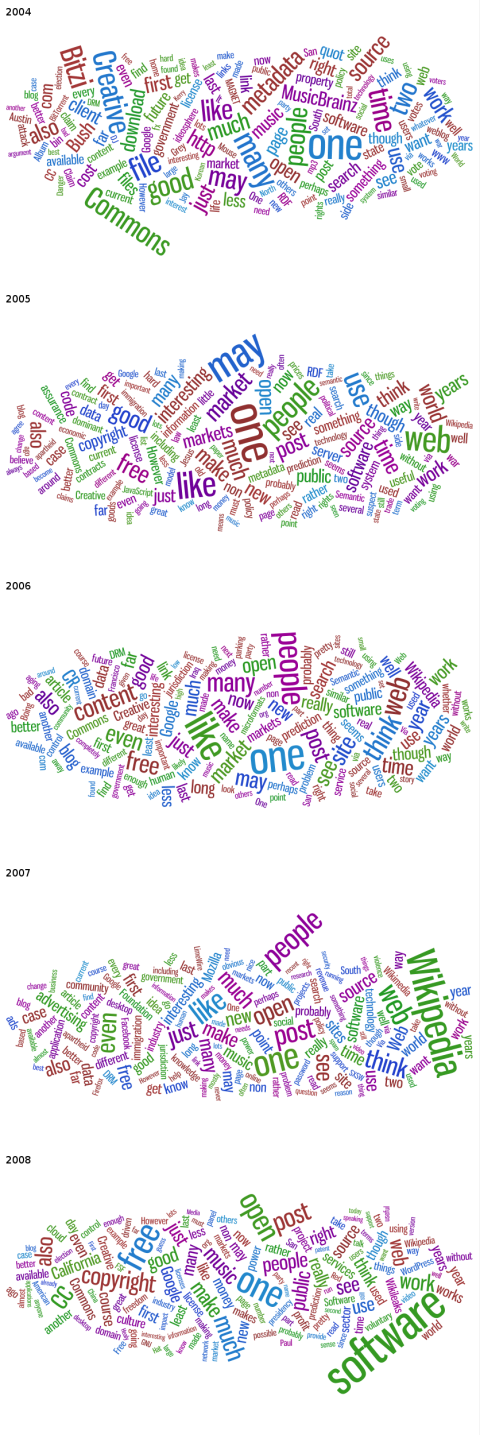Megan McArdle, supposed econoblogger, dashes off a lame bit of producerist claptrap, ludicrously titled The end of property:
I will be more convinced when I see an actual increase in the number of quality musicians who don’t have to supplement their art with a job delivering pizza.
Commenter Chris O. delivers the right correction:
The measure of success is not how many people are delivering pizza, but if the music listener is getting good music.
So this is one of the correct metrics, and there’s plenty of reason to think there’s zero problem with supply. Commenter Nathan provides the obvious reason:
Because the reality is, if there are enough people who fit that description, and if even 1 out of 1000, or 1 out of 10000 makes stuff that is at least interesting – and if there are appropriate communities for sorting and rating the stuff – then there really isn’t a natural market for buying recordings of many kinds of music. Right? This is the reality of the market, the thing that blogs have made perfectly clear – there are a lot more people talented and skilled at certain tasks than your instincts would tell you, and it’s always a bad idea to try to make lots of money in a space where people love what they do and are willing to work for nearly nothing
Read subsequent comments for more in that vein.
A little less obviously, see Tom W. Bell’s Outgrowing Copyright: The Effect of Market Size on Copyright Policy.
Somewhat oddly (to me), Keith Kahn-Harris, a “sociologist and the convener of New Jewish Thought” makes a whole lot more sense, and takes the argument further, writing In praise of part-time musicians in the Guardian:
Yet my argument is not that participation in capitalist society compromises musical excellence, but that participation in capitalist society can support musical excellence provided that musicians earn a living away from music. Yes, I am writing in praise of the “day job”.
Regarding the title of this post, no I am not optimistic, regardless of policy.

